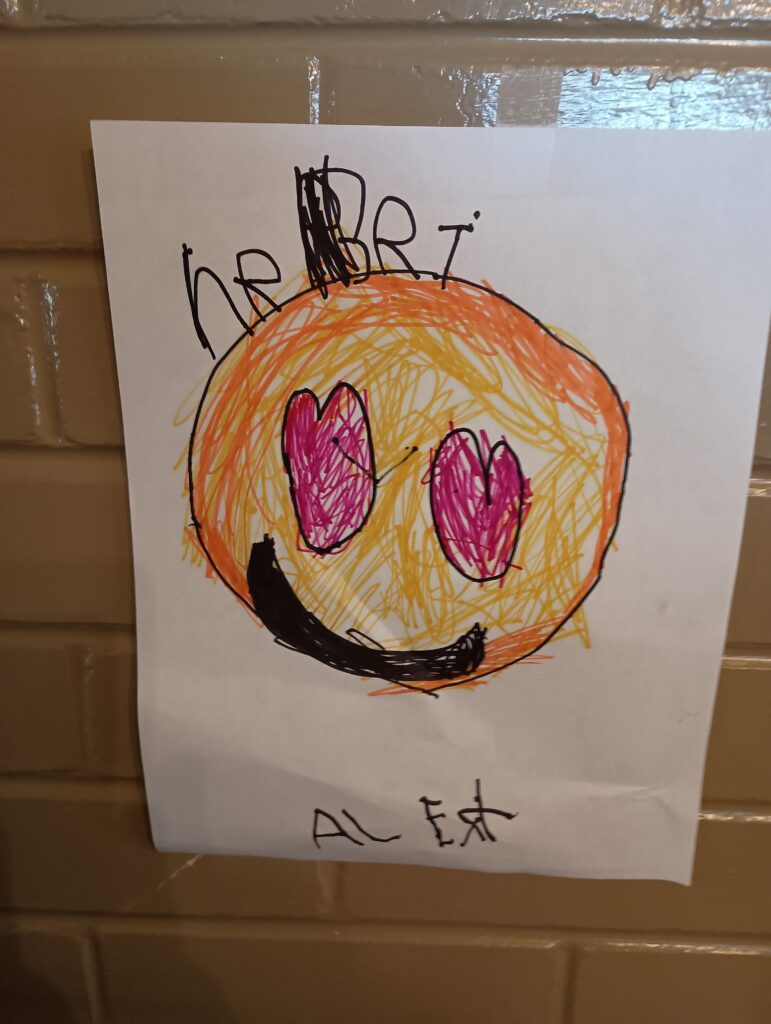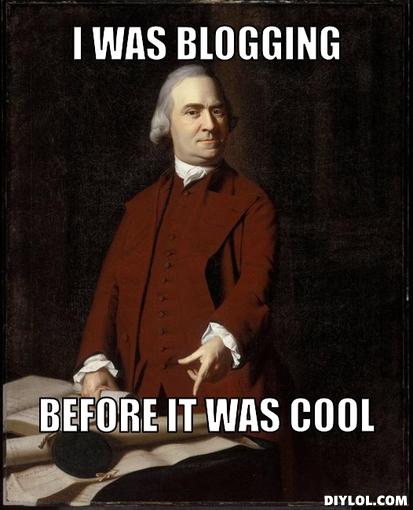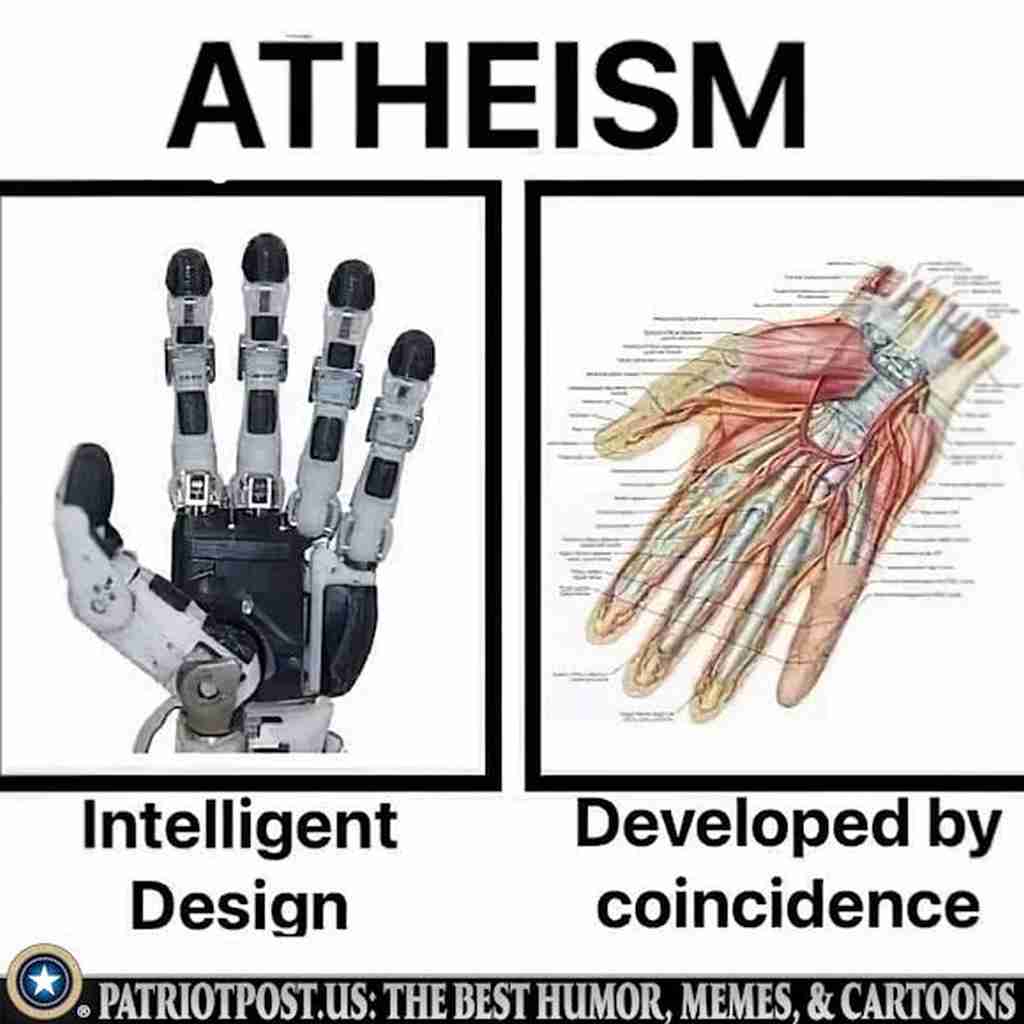Dear Fans, Friends, Fiends, Foes, Followers and Foundlings,
I am attempting to use my phone to write this to you! This is a big difference to me and I hope I can make it work. Some of it on the phone, some on the laptop and some on the desktop. Instead of writing in Word first, then pasting into the blog, I will write the blog first and save it as a Word document later. * Edit/Add: I started this a couple of weeks ago and am just now finishing it. It is longer than my usual offerings, but I hope you enjoy it anyway. *
As you may or may not know, I love Sunday School. I haven’t been telling you all about it any more than I have anything else. I was really pleased with the outcome of this lesson and the prep for it, though. The curriculum sometimes calls for a broad telling of a story and this was one of those times. Last week’s lesson was the story of Pharaoh’s daughter and Moses being raised by his own mother. This week we had to go from the murder of the Egyptian to the Burning Bush. This is always an interesting challenge to me, picking which part of the story I want to go with. I prayed over it and read the story in the Bible over and over again, thinking about it and wondering about some points in the story all week and by Friday I had an idea of how I was going to approach it.
Now, I never tell the same story in the same way twice in a row and my original audience was 8 – 11 year olds. Writing to (mostly) adults is different, also. And, even though a writer is a story-teller, it’s still not the same as telling the story, but I will attempt to re-create the lesson and expand it a bit for you.
Moses is an interesting, multi-faceted character, which gives a lot of angles for story-telling. We know from the book of Hebrews and Stephen’s sermon to the Sanhedrin court that Moses, being raised and indoctrinated by his mother for at least his early years (he was likely not consider weaned until at least age 5) was well-educated by and famous among the Egyptians. He was likely a general who did many exploits, according to many traditions and some history. And yet when he was around 40 he left it all. Turning 40 makes a man pause and take a look at his life and he was probably no exception. He knew he was a Hebrew and I wonder if others around him reminded him of it. Is that why he became a great general and a brilliant thinker; to compensate for the differences between himself and other members of Pharaoh’s household? How sheltered was his life in the palace. Did his brother and sister (and mother) have access to him? Maybe.
We do know that a day came when he went out to see how his brethren did with their burdens. He saw an abusive Egyptian taskmaster, looked around to make sure nobody was looking, then killed him and buried him in the sand. The next day he saw two Hebrews fighting and tried to separate them. In an interesting bit of literary foreshadowing, the guy said, “Who made thee a prince and a judge over us?”
Thus Moses leaves the Egyptian scene forever. Racing away from Egypt he goes to the backside of the desert and comes to the town where the priest of Midian lives. Even though he was the meekest man on Earth, he was also a hot-headed scrapper when the occasion arose. Killing the Egyptian, Separating the two Hebrews and who knows what he did as a general, he ran into trouble here, too. The seven daughters of the priest always brought their father’s sheep to be watered but ran into trouble with the other, male, shepherds. They were constantly bullied and harassed by the others. Well, until this day, when Moses again shows his manhood and his temper, perhaps righteous indignation would be a better description.
Moses, sitting at the well, sees what is going on and mans up to the bullies. This is where I stopped and told the boys that they should always stand up for girls and help them. That what Moses did was manly. He drove those shepherds away and watered the girls’ flock for them. Apparently they were so excited about getting off work early that they forgot to show any appreciation. They get home and dad says, “Why are you so early today?” I can just imagine (We have a saying among the teachers in our Sunday School class that the reason God only gives us the bare-bones facts in the Bible on a lot of stories is so Sunday School teachers can use their imaginations and tell fun stories) a bunch of sisters coming home, especially since we don’t know their ages.
“Oh daddy! An Egyptian came and stood up for us against the shepherds…”
“It was wonderful daddy!”
“You should have seen him!”
“And then he watered the sheep…”
“And he had such beautiful eyes…”
“Oh daddy, he was so dreamy.”
“Well,” said dad, “He must have been some kind of a man to stand up to that lot all at one time. Where is this dreamboat of a man? You did bring him home to dinner to show your appreciation, didn’t you?”
Uh-oh. So did all seven of them go back or maybe just Zipporah said she would, “Trudge back to the well and see if he was there?” I don’t know, but the next thing we know is that Jethro is giving away Zipporah in marriage and Moses has found a place to live out his life. How difficult was it for him to adjust to life as a shepherd? How long did it take? He had lived in the palace of Pharaoh and tasted the good life for forty years and when he had made a decision to stand up for his own people, thinking, perhaps, that his status would help him, only to find out just the opposite. And when he made his big decision all he managed to do was run away.
It was probably better this way, anyway. He could serve the God that his mother had taught him about and he wasn’t living a life that belied his heritage any more. No, his ancestors, Abraham, Isaac and Jacob had all been shepherds and herdsman, and this life was a good one. He had a good wife and a couple of good, strong boys to help him and with the tribe that his siblings-in-law had managed to make, he actually had more than enough people around him and when he wanted to be alone, he just had to take his turn tending the flock. He even got to hear news of his family now and again. Aaron made an occasional trip out once in a while.
As senior shepherd he could take them as often or as little as he wanted and he liked the solitude of the desert, knowing where all the watering holes were and where the grass was. and how to deal with the sheep. Animals were funny. They all had their own personality. One was kind of grumpy and slow, another one was friendly and loving and another one was always trying to get off the path and go wandering by itself. A lot of the time all he had to do was lead them somewhere and then just sit and watch over them making sure no beasts came among them. He may be eighty years old but he was still strong enough to take care of a lion or wolf. He was all man, known as quiet and humble but not weak. He could be tough enough to tackle the wildest beast that would attack his flock but gentle enough to be able to treat a wounded lamb without hurting it.
And he had come to love the desert. It may look barren but it was teeming with life. He knew every inch of it, where to lead the sheep to and what to protect them from and he had seen just about everything until he saw this:

Well, okay, maybe he didn’t see exactly this. This was what I came up with when I decided I wanted to focus the story on the conversation at the bush. With input and help from Margaret, Tabitha, Isabel and Ben I came up with my own version of the burning bush. With flames drawn on a couple of pieces of cardboard covered with tinfoil, some halloween lights, a few cut branches and a pot of dirt and rocks I made my very own burning bush.
Our classroom is totally black when the lights are off, so the lights reflecting on the foil flame shapes in between the branches had a kind of mesmerizing effect on everyone. When the lights went off and the bush came on you could hear a pin drop. And on a carpet in a room full of more than forty eight to eleven year olds that’s something.
It started out as an ordinary day for Moses. Getting up and going to work, eating the sack lunch his wife had packed, taking a little nap, perhaps, getting up and leading the sheep around to the little rivulet on the shady side of the mountain. Along the way of the path he saw a bush on fire. Nothing real unusual about that, just something to keep an eye on in case it might spread. It happened out here from time to time. Thankfully there was little fuel and things that caught on fire usually just went out. Strange, though, there was none of the desert lightning going on and the sun was not strong on that part of the mountain.
Stranger still, the fire was not going out. It didn’t even look like the bush had been consumed. Being of a curious and intelligent nature he decided to investigate. As he drew closer, something else that was strange happened. A voice spoke to him, “Moses.”
As far as he knew, according to what his mother had taught him, and she had taught him a lot about the subject, no one had heard that voice in over four hundred years.
“Moses. Draw not nigh hither: put off thy shoes from off thy feet, for the place whereon thou standest is holy ground.
“I am the God of thy father, the God of Abraham, the God of Isaac, and the God of Jacob.” And Moses hid his face; for he was afraid to look upon God. And thus opens one of the (if not the) strangest conversations ever recorded. A conversation that had been eighty years in the making. A conversation that would lead to one of the most unusual relationships ever seen. It’s part sales pitch and part divine command. I call it a sales pitch because of the way the LORD deals with the man. Telemarketers are told they have to get at least three “no” responses before letting you off the hook and as anyone who has been in sales will tell you, you have to meet the customer’s every objection to make the sale. I know people who can sell. There are people who could sell a refrigerator to an Eskimo and get him to buy his own mukluks as well. They can sell wallpaper to a wall. The secret, I have been told (I consider myself something of a salesman, but not in the class I am talking about), is to meet the customer’s objections. A good salesman will meet every reasonable objection and a great salesman will meet every objection.
I imagine the conversation sounded something like this:
“I have seen the affliction of my people and their cry by reason of their taskmasters.” And Moses is nodding, thinking about how the people had lived and all the things he had seen in Egypt and maybe remembering how angry he had been at their treatment. “I am come down to deliver them and bring them to a land flowing with milk and honey.” Man, that sounded good. “The people’s cry has come up unto me and I have had enough of their oppression. I’m going to do something about it.”
“Good,” Thinks Moses, “It’s time for something to be done.”
“Come now therefore, and I will send thee unto Pharaoh, that thou mayest bring forth my people the children of Israel out of Egypt.”
“Uh-oh! Now wait a minute.” He thinks, “I tried that forty years ago…me?” Out loud he made the first objection, “Who am I, that I should go unto Pharaoh, and that I should bring forth the children of Israel out of Egypt?”
But, God the Salesman easily meets this objection and also raises the stakes a little bit with a sign thrown in. “Certainly I will be with thee,” well what are you going to say to that, I mean, this is only the Creator of the universe that is going to go with you. “And what’s more, when you accept this fabulous offer, You’ll also get this lovely token that I have sent thee: When thou hast brought forth the people out of Egypt, ye shall serve God upon this mountain. Yes, that’s right. Not only will I go with you but I also promise this lovely sign.”
Moses, thinking quick, comes up with the second objection, “Um, look, see, I’m going to go down there and tell these folks that the God of your fathers has sent me, they’re going to say to me, ‘well, Mr. Moses, then tell us, what is His name?’ What am I going to say?”
“I AM THAT I AM.” I wonder if the bush flared up a bit? “Tell them I AM has sent you. And what’s more, you make sure they know, I AM the God of Abraham, the God of Isaac, and the God of Jacob. Get the elders of the Children of Israel together and tell them I’ve seen what’s been going on and I’m going to bring you out of Egypt to a land flowing with milk and honey.
“And here’s the plan. You and the elders of Israel are going to go to Pharaoh and tell him that the self-existent, eternal God of the Hebrews has met with us and said we need to go three days journey into the wilderness and worship Him.”
Now, the really great salesmen are honest, as well. They already know their product well enough to know any possible downsides and will bring them out at the appropriate moment. The most successful salesmen are the most honest. “And he won’t let you go. No, not with a mighty hand.” That’s a real confidence builder, huh?
“But wait, there’s more. I’m going to stretch out my hand and do my wonders in the midst of Egypt and smite them but good. Then they will let you go. Not only will he let you go, make sure everyone borrows gold and jewels and all kinds of things from their Egyptian neighbors because when you go, you shall not go empty, but every woman shall borrow of her neighbour, and of her that sojourneth in her house, jewels of silver, and jewels of gold, and raiment: and ye shall put them upon your sons, and upon your daughters; and ye shall spoil the Egyptians.”
“Look,” said Moses, raising the third objection, the one a lot of telemarketers give up after, “They’re not going to listen to me, let alone believe me. They’re going to say, ‘The LORD didn’t appear to you.’”
“Okay, what do you have in your hand?”
“A rod.” A pole or piece of wood about six feet long, maybe with a bend at the end. Symbol of shepherds, used in many ways, from fighting off wild beasts to rescuing lambs. In larger flocks I read that instead of verbal commands the sheep learned visual cues from different ways the staff was held. It had been a tool in the hand of Moses for at least the forty years he was a shepherd and it is possible that he had it in Egypt.
God said, “Throw it on the ground.” So he threw it on the ground. And it turned into a snake and Moses fled from before it. This is a fun part of the lesson to do, especially if you are a big ham and love to be dramatic and tell a story with some action and feeling. Actually, if my opinion is right, I think Moses had a right to be afraid. I think this was an Egyptian Spitting Cobra, deadly, venomous and worn on the headdress of the Pharaoh as a sign of power and divinity. Not that any of that crossed Moses’ mind at the time. He was a shepherd and before that he was a highly-educated Egyptian Royal. He knew what dangerous animals were and he knew to get away from this one. If he had a staff in his hand he could probably deal with it a lot better than face it bare-handed.
“Grab it by the tail.” This is, of course, the worst way to catch a snake because he can turn around and bite you, especially if the staff was like the average six feet long. Grabbing a six foot long serpent at all seems to be a bit counter-intuitive. Whether Moses might actually have grasped the symbolism we don’t know, but he had to begin to realize that the things his mother had taught him were true. I think he believed her since she had taught him about the one, true God since he was an infant. It was one thing to know the stories but another thing to live them. As he reached down to grab the serpent, feeling it instantly turn from a scaly, deadly creature back into the familiar old friend he had held in his hand all these years, something stirred within him. There was more than mere power here. This was the very Creative Force Himself at work.
“Stick your hand in your shirt. Pull it back out.”
Leprosy! One of the most vile and hated diseases known to man and his hand was completely covered in it. There’s no place to run from it and there’s no known cure. Fortunately for him he doesn’t have time to think too much about it and get himself in real trouble.
“Stick it back in your shirt.”
“Take it back out.” Clean again, same as before!
“If they don’t believe you after either of those two things, take some water out of the Nile and pour it out and it will become blood.”
“Um, well, look,” begins the fourth objection, “I never was much of a talker, and it’s been forty years since I spoke either Egyptian or Hebrew. And I haven’t spoken much other than to sheep in the last forty years, either. I’ve always been kind of slow-tongued and I haven’t heard it getting any better since we started talking.”
If you’ve ever worked in retail, you know there is always that one customer that, you know they want to buy it but, well, some customers can just be exasperating. You know the one, “But what about this…” and “What if that happens” and “can I think it over?” You know they need it, want it, would love it if they had it and you spend so much time explaining why copper rivets on the pockets make these jeans superior and for crying out loud, lady, it’s just a pair of jeans. Buy ’em already so I can go to lunch. But you are patient, and maybe showing just the ever so slightest bit of aggravation you meet another objection.
“Well, who do you think made man’s mouth?” I can hear the exasperation beginning to build in this conversation, “Or the mute or the deaf or the seeing or the hearing or anything else? Not only will I go with you, and tell you my name and throw in some miracles, act now and I will also be with thy mouth. That’s right, I will be with your mouth to help you and tell you what to say next.”
The final objection appears to also have been the last straw. It shows how even the most tolerant and patient of salesmen can get tired of it and this is where the salesman analogy breaks down. We are not talking about a salesman, we are talking about the Almighty God. The one who had created Moses with specific talents and abilities that were peculiar just to him. The Self-existent one who had saved his life, saw to it that he was trained and educated by the best minds available in the known world to be the mightiest ruler of the mightiest nation, all the while being nurtured and taught by his own mother. This was The One who saw Moses decide to leave Egypt and suffer the consequences and who taught him how to be a shepherd. He could also see what was really in Moses’ heart, even more than Moses knew himself. He knew that in Moses’ heart was a desire to help his people and to understand the ways of this almighty, self-sufficient One that his mother had told him of. There is only One who knows the heart of man.
Moses’ only thought he couldn’t do it when he raised the last objection, “Oh, send by whom thou wilt.” Send anybody besides me. And yet, in this whole conversation I never see Moses give a flat out, “No.” He is humble and insecure and, perhaps, reluctant, knowing the Egyptians and knowing what it’s like to try to be a shepherd to sheep, let alone being a shepherd and leader to so many people as his were. But God is trying to get something done here and, I think, getting a little tired of being second-guessed. If the bush ever flared up, it did so now as, “The anger of the LORD was kindled against Moses.” “Well, I know your brother Aaron can speak well and he is coming to meet you. I will talk to you. You will talk to Aaron and Aaron will talk to Pharaoh. You will be like God and Aaron will be like your prophet. Now take your rod and go!” And so he went and the rest, as the saying goes, is history.
Remember, the Good Book says, “He made known his ways unto Moses, his acts unto the children of Israel.”










